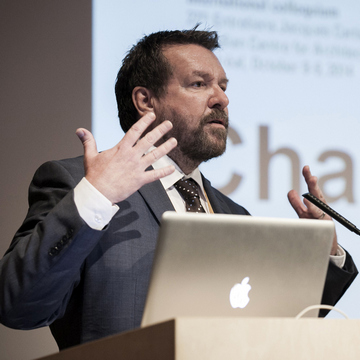In December, renowned Canadian psychology professor Colin Ellard will arrive in Yekaterinburg.

His book "Habitat. How architecture affects our behavior and well-being" has been translated, among other things, into Russian.
Colin Ellard works in the fields of psychology, planning, architecture and urban design and has been publishing research on these topics for many years. The professor collaborates with scientists, architects, planners and artists.
Colin Ellard is Director of the Urban Realities Laboratory at the University of Waterloo in Canada and Chief Researcher at Hume.Space and a member of the Advisory Council of the Academy of Neuroscience on Architecture will hold an author's lecture on the Psychology of High–rise Construction at the 100+ Forum Russia. Today, more than half of the world's population lives in cities, and experts have developed a great interest in understanding how to build cities with high population density and numerous high-rise buildings. According to the Canadian scientist, the most difficult issue is the psychological impact of such constructions on people. Living in close proximity to them can lead to unnatural and stressful conditions.
"At the University of Waterloo's Urban Realities Laboratory, we are conducting experiments aimed at understanding the impact of the urban environment on human behavior using a variety of methods, including both virtual reality and field research. We use state-of-the-art tools to measure the physiological changes of the body and brain under the influence of the urban environment. In my presentation, I will describe the results of such studies, focusing on the psychological impact of high-rise structures," explains Colin Ellard.

